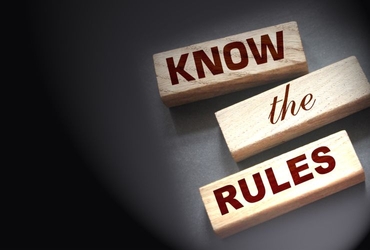
Shipping to Ecuador from USA: 5 Tips to Know



Ecuador has well respected market for their petroleum, bananas, flowers, and shrimp. As a result the Central American country has built a great reputation for her products and the United States is one her major trading (import and export) partners in the region. In 2018 alone, Ecuador was the United States 40th largest export market for American goods. The US goods worth $5.8 billion last year compared to the $940 million of the previous year. This means that the number of goods going into the Ecuador from the US has been increasing.
Ecuador has Free trade zones
The United States foreign trade zones are dotted all over the globe and they facilitate easier and faster economic growth. These areas are geographic areas that located within the Ecuador but they are treated like they are located outside the boundaries of the country for customs purposes. Ecuador has four free trade zones and the United States has 150 trade free zones. These areas are used for various economic activities in Ecuador and the US like assembly, manufacture, distribution, and shipping of products.
The free trade zones guarantee that companies can ship their goods into another country and export the goods to the final destination free of duty. Duty is only paid on the goods once they enter the destination country. This means that goods from the US free trade zones can move through the Ecuadorian free trade zone until they reach the final destination and only be charged duty upon reaching the final destination in Ecuador.
They impose tariff and non-tariff restrictions
The country has imposed tariff and non-tariff restrictions on goods and the rates depend on the goods in question. As a member of the World Trade Organization they limit their tariffs to thirty percent or less. For example, the Most Favored Nation tariff is typically at 7.6% on industrial goods. But Ecuador has implemented even stricter restrictions under the Trade Practice review that allows them to levy even higher rates on the Most Favored Nation tariff.
According to the Ecuadorian government this review is necessary to protect Ecuador’s balance of trade which has been adversely affected decrease in oil prices and increase in the value of the American dollar. Remember Ecuador is heavily reliant on crude oil as a major export and its main export partner is the United States.
Documentation when shipping to Ecuador
From 2008 the Ecuadorian government has instituted a risk analysis system that is overseen by the National customs Service of Ecuador (SENAE). Both foreign and US importers must register with the body and receive a company tax number, also known as the RUC number, which is issued directly by the Ecuadorian Internal Revenue Service (SRI).
Once this is obtained one will always need to have the following documents to import anything into Ecuador from the US:
Always have the INEN-1 certificate where applicable
The government of Ecuador has laws requiring certification when importing certain products into the country. According to the Ecuadorian law 2007-76 before selling any products both imported and domestic one must demonstrate to the authority compliance with technical regulations through a certificate of conformity. This certificate must be issued by an accredited certification entity. This is where the INEN-1 certificate comes into play.
The INEN-1 certificate is issued by the National Standards Body of the republic of Ecuador which is in charge of technical regulation of goods in the country, both domestic and imported. They work in close collaboration with the government, consumers and industries to protect consumer rights and welfare, keep the safe, promote sustainable development and also facilitate and standardize domestic and international trade. Without this certification goods may be rejected from entering the country.
The following goods need INEN-1 certification to clear customs:
- Vehicles
- Ranges and stoves
- Electric generators
- Tires
- Textiles and footwear
- Refrigerators
- Kitchen appliances
- Construction materials
- Automotive lubricants and brakes fluids
- Contraceptives
- Food stuff
- Toys
- Personal care items
- Cleaning supplies
- Cosmetics
- Wires and valves
- Household electronics
- Jewelry
- Kitchenware
The Ecuadorian government accepts the US certification of Free Sale which is authorized by the FDA. (US Food and Drug Administration).
There are Prohibited Items
The country completely prohibits the entry of certain products from the US and other importers. This is includes any reptile skins like alligator skins from the US or exotic snake skins from Arizona. They also prohibit used vehicles from the US, used tires, ivory in its raw or worked form and pesticides. They can make an exemption for used special purpose vehicles from the US like ambulances, fire trucks, street sweepers, mobile clinics among others are allowed as donations but they must also be accompanied by the INEN-1 certification mentioned above.
Related Articles


